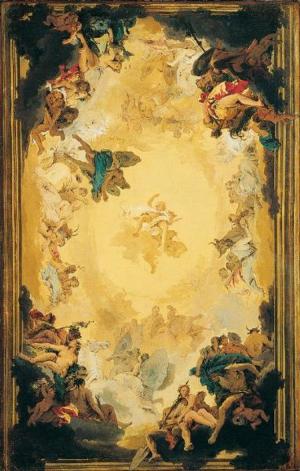The Old and the New Magic
Nonfiction, Religion & Spirituality, New Age, History, Fiction & Literature| Author: | Henry Ridgely Evans | ISBN: | 9781465620217 |
| Publisher: | Library of Alexandria | Publication: | March 8, 2015 |
| Imprint: | Language: | English |
| Author: | Henry Ridgely Evans |
| ISBN: | 9781465620217 |
| Publisher: | Library of Alexandria |
| Publication: | March 8, 2015 |
| Imprint: | |
| Language: | English |
The very word magic has an alluring sound, and its practice as an art will probably never lose its attractiveness for people’s minds. But we must remember that there is a difference between the old magic and the new, and that both are separated by a deep chasm, which is a kind of color line, for though the latter develops from the former in a gradual and natural course of evolution, they are radically different in principle, and the new magic is irredeemably opposed to the assumptions upon which the old magic rests. Magic originally meant priestcraft. It is probable that the word is very old, being handed down to us from the Greeks and Romans, who had received it from the Persians. But they in their turn owe it to the Babylonians, and the Babylonians to the Assyrians, and the Assyrians to the Sumero-Akkadians. Imga in Akkad meant priest, and the Assyrians changed the word to maga, calling their high-priest Rab-mag; and considering the fact that the main business of priests in ancient times consisted in exorcising, fortune-telling, miracle-working, and giving out oracles, it seems justifiable to believe that the Persian term, which in its Latin version is magus, is derived from the Chaldæan and is practically the same; for the connotation of a wise man endowed with supernatural powers has always been connected with the word magus, and even to-day magician means wizard, sorcerer, or miracle-worker. While the belief in, and practice of, magic are not entirely absent in the civilization of Israel, we find that the leaders of orthodox thought had set their faces against it, at least as it appeared in its crudest form, and went so far as to persecute sorcerers with fire and sword.
The very word magic has an alluring sound, and its practice as an art will probably never lose its attractiveness for people’s minds. But we must remember that there is a difference between the old magic and the new, and that both are separated by a deep chasm, which is a kind of color line, for though the latter develops from the former in a gradual and natural course of evolution, they are radically different in principle, and the new magic is irredeemably opposed to the assumptions upon which the old magic rests. Magic originally meant priestcraft. It is probable that the word is very old, being handed down to us from the Greeks and Romans, who had received it from the Persians. But they in their turn owe it to the Babylonians, and the Babylonians to the Assyrians, and the Assyrians to the Sumero-Akkadians. Imga in Akkad meant priest, and the Assyrians changed the word to maga, calling their high-priest Rab-mag; and considering the fact that the main business of priests in ancient times consisted in exorcising, fortune-telling, miracle-working, and giving out oracles, it seems justifiable to believe that the Persian term, which in its Latin version is magus, is derived from the Chaldæan and is practically the same; for the connotation of a wise man endowed with supernatural powers has always been connected with the word magus, and even to-day magician means wizard, sorcerer, or miracle-worker. While the belief in, and practice of, magic are not entirely absent in the civilization of Israel, we find that the leaders of orthodox thought had set their faces against it, at least as it appeared in its crudest form, and went so far as to persecute sorcerers with fire and sword.















